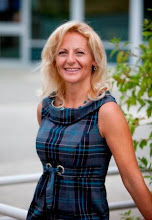
The new Masters in Sustainable Leisure Management at VIU is done in partnership with the World Leisure Organization. As such, we are trying our best to internationalize the content that the students are exposed to. One of the ways we are doing this is to bring in "visiting scholars" or experts in sustainability and innovation. Our first visiting scholar is Dr. Tobias Luthe, Senior Researcher at the Transdisciplinary Sustainability Studies - University of Applied Sciences Institute for Tourism and Leisure Research in Chur, Switzerland.
The Graduate students have been learning from Dr. Luthe in their first course on Paradigms and Principles in Sustainability. Tonight, Tobias will share some perspectives with the public when he gives a lecture on : Sustainable Consumption - innovating products and behavior: the case of tourism in the European Alps. Sept 27, 7 - 9 pm at the Nanaimo Campus of Vancouver Island University in Building 355-203. Join us!
"Todays’ challenges of designing and managing a complex world require innovations in how economies and markets function. Global environmental change further increases the pressure on societal transitions to design resilient and more sustainable economies.
As one example, tourism in the European Alps is of highest regional economic importance while being a saturated industry suffering from climate change and socio-economic developments. Current efforts to increase adaptive capacity focus on maintaining a status quo – clearly lacking innovation and pioneering developments. The Alps have a history though of pioneering success in tourism, such as the train up to the Eiger or the gondola to the Klein Matterhorn. Fresh ideas are needed now to develop an industry that is resilient to change, and that understands change as an opportunity to innovate in both products and services. Such a step requires behavioral changes from all stakeholders, on the production and the consumption side. Sustainable consumption is a paradigm of growing importance that allows to fuel necessary market innovations that can drive Alpine tourism to become more sustainable. This presentation discusses examples of new products and market developments in the tourism industry of the Alps both from a qualitative and a quantitative angle.
The Graduate students have been learning from Dr. Luthe in their first course on Paradigms and Principles in Sustainability. Tonight, Tobias will share some perspectives with the public when he gives a lecture on : Sustainable Consumption - innovating products and behavior: the case of tourism in the European Alps. Sept 27, 7 - 9 pm at the Nanaimo Campus of Vancouver Island University in Building 355-203. Join us!
"Todays’ challenges of designing and managing a complex world require innovations in how economies and markets function. Global environmental change further increases the pressure on societal transitions to design resilient and more sustainable economies.
As one example, tourism in the European Alps is of highest regional economic importance while being a saturated industry suffering from climate change and socio-economic developments. Current efforts to increase adaptive capacity focus on maintaining a status quo – clearly lacking innovation and pioneering developments. The Alps have a history though of pioneering success in tourism, such as the train up to the Eiger or the gondola to the Klein Matterhorn. Fresh ideas are needed now to develop an industry that is resilient to change, and that understands change as an opportunity to innovate in both products and services. Such a step requires behavioral changes from all stakeholders, on the production and the consumption side. Sustainable consumption is a paradigm of growing importance that allows to fuel necessary market innovations that can drive Alpine tourism to become more sustainable. This presentation discusses examples of new products and market developments in the tourism industry of the Alps both from a qualitative and a quantitative angle.








